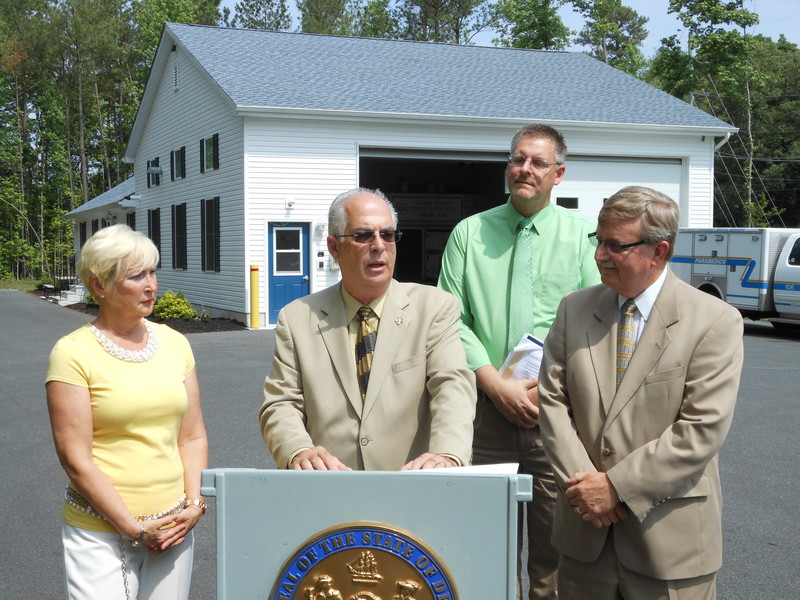Sussex County GOP wants to change state prevailing wage

In an effort to reduce the cost of public works projects, Sussex County Republican lawmakers introduced two proposals June 4 to change the state's prevailing wage system.
The hourly wages for skilled and unskilled workers on state-funded projects are set using the prevailing wage system; the wages are based on a voluntary survey by the state Department of Labor. All projects using state funding are required to pay government-set wages. Private sector projects are not.
The first bill would change the process for determining prevailing wage, said House Minority Leader Rep. Danny Short, R-Seaford, during a press conference at Sussex County Paramedic Station #106 on Indian Mission Road in Long Neck.
Citing Department of Labor statistics that show 638 of 2,794 surveys returned, Short said the system is truly flawed and broken.
He said current process often results in setting of wages well above market conditions. The system, said Short, also produces wide fluctuations from one county to the next for the same occupation. He pointed to glaziers – glass installers – who get paid $65.60 per our in New Castle County but only $20.15 an hour under the system.
Short said the first bill would adopt data gathered by the U.S. Department of Labor Bureau of Labor Statistics.
“It would ensure that workers on Delaware's public works projects would receive fair market ages,” said Short.
The second bill is already pending action in the House Administration Committee. House Bill 6 would update prevailing wage thresholds for the first time in 20 years. New state-funded construction projects in excess of $100,000 and renovation projects above $15,000 are subject to the prevailing wage law. The bill would raise those thresholds to $350,000 and $100,000.
Rep. Ruth Briggs King, R-Georgetown, said the problem with the current system is that construction prices have risen considerably since the last time it was adjusted in 1994, but the thresholds haven't.
“This is about money not politics,” said King.
Sen. Minority Leader Sen. Gary Simpson, R-Milford, said this is an economic issue, and these two changes make sense. He said the savings could be given back to taxpayers or be used to prompt future economic development.
“These are the easiest things the governor could do to stimulate the economy,” he said.
Georgetown Town Manager Gene Dvornick attended the conference representing the town and the League of Local Governments. He said the purpose of the proposals is to maximize taxpayer dollars.
Dvornick cited the costs of two infrastructure projects to show how the prevailing wage cost the town 25 percent more than if a private company were to have done the same projects.
A 490-foot long, 35-foot wide street with 460 tons of hot mix cost $71,230 under the prevailing wage system instead of $56,378 without it, said Dvornick, and a sewer project replacing four sewer laterals cost $26,500 instead of $19,500.
“The infrastructure needing improvement exceeds the financial resources available,” said Dvornick. “These two relatively small projects had an added cost of $21,852, which is enough money to do another project.”
Chris Flood has been working for the Cape Gazette since early 2014. He currently covers Rehoboth Beach and Henlopen Acres, but has also covered Dewey Beach and the state government. He covers environmental stories, business stories and random stories on subjects he finds interesting, and he also writes a column called Choppin’ Wood that runs every other week. He’s a graduate of the University of Maine and the Landing School of Boat Building & Design.




















































